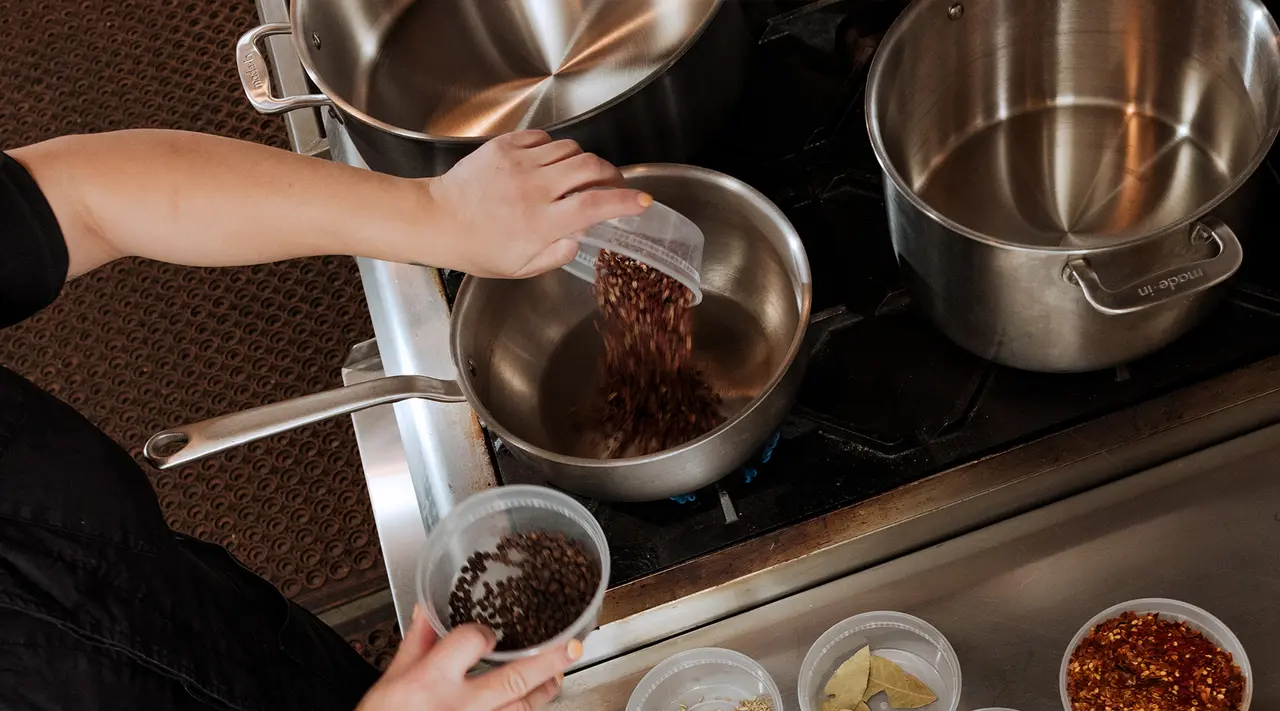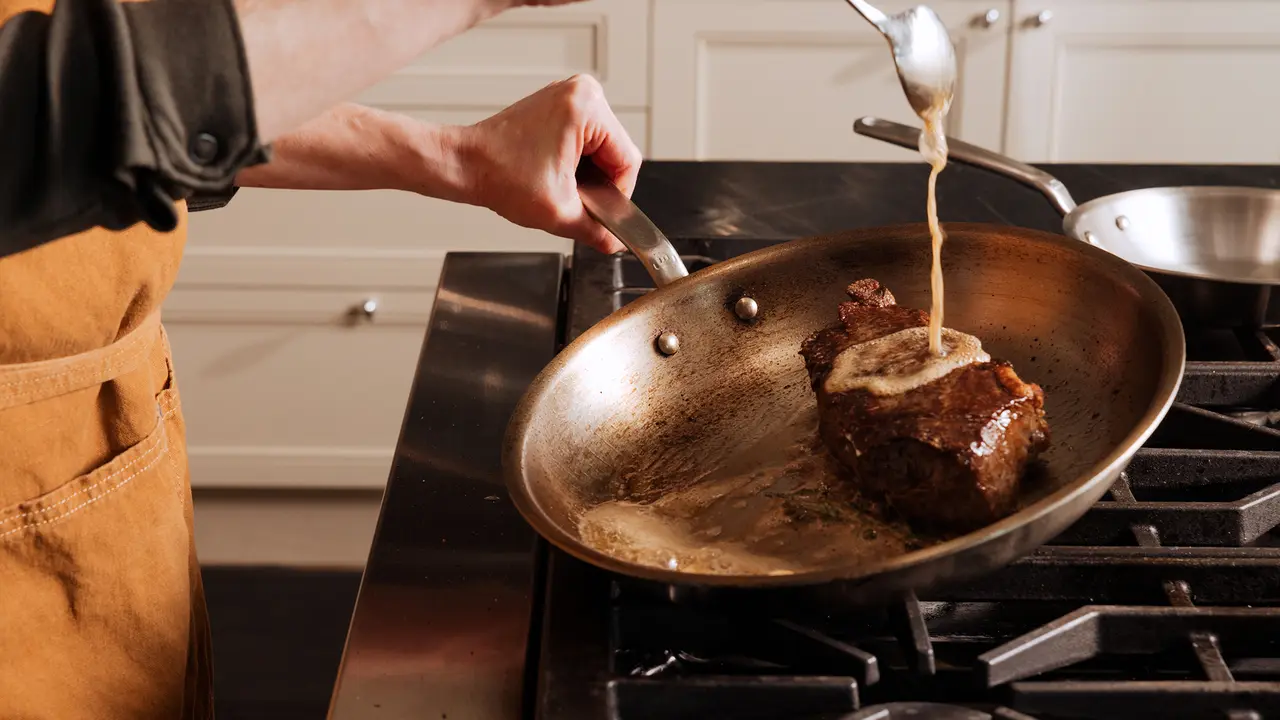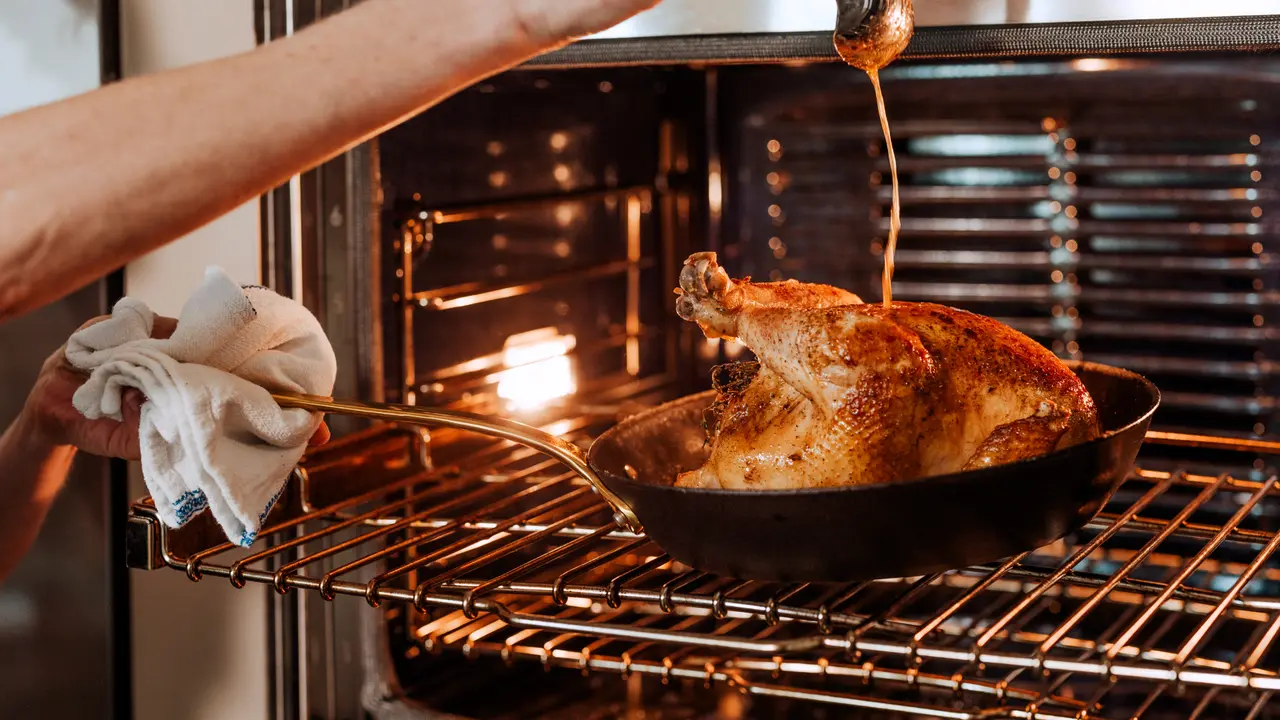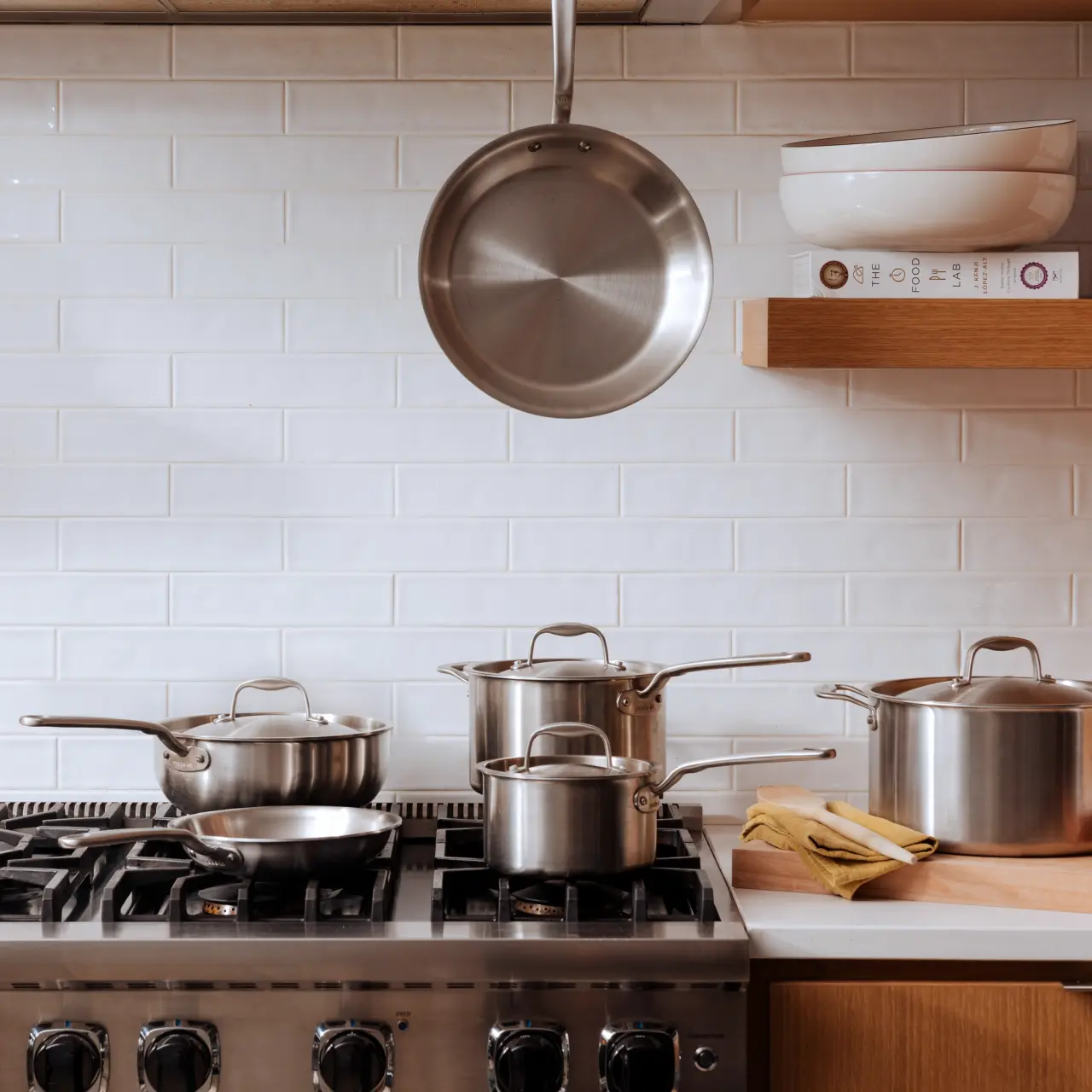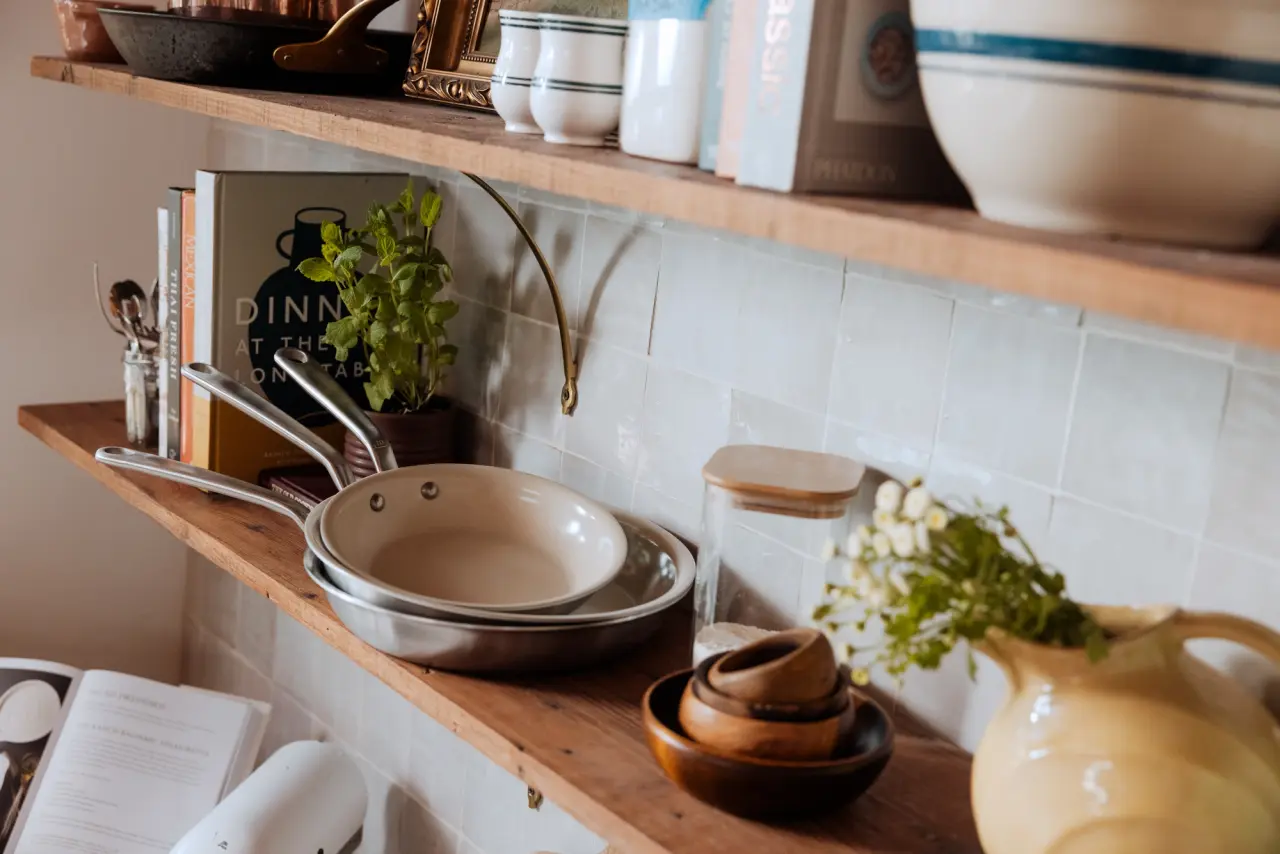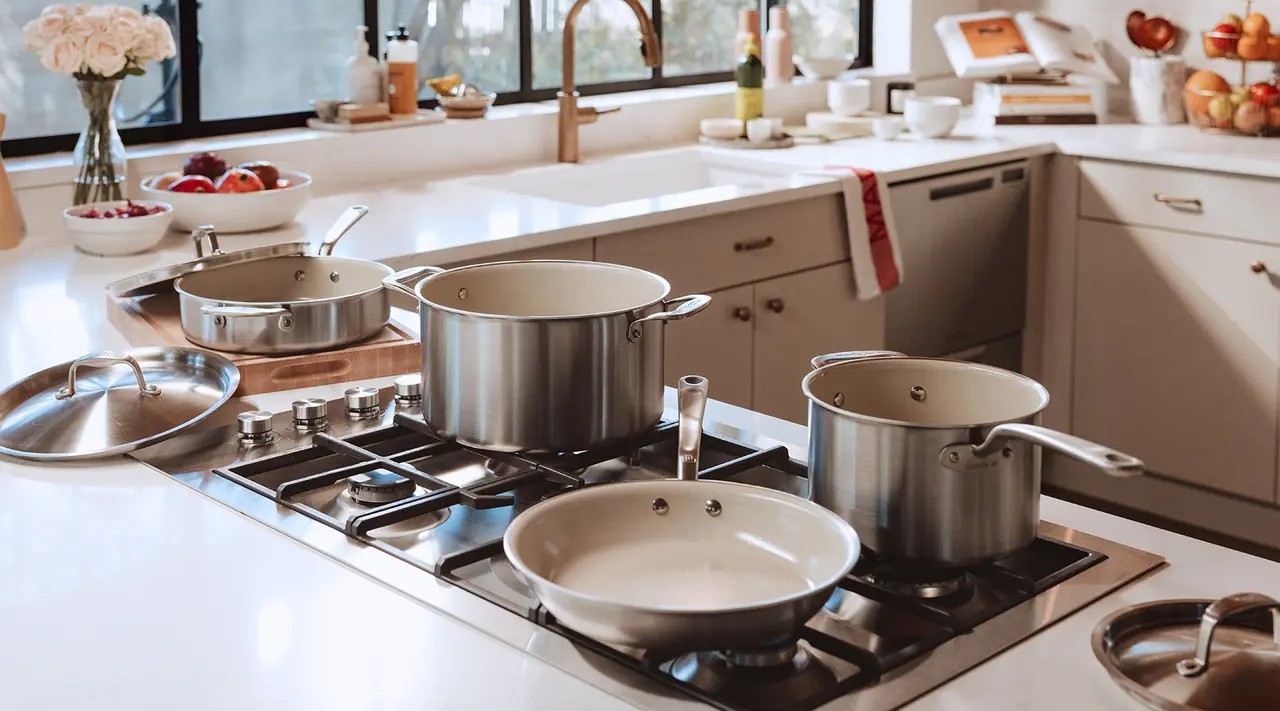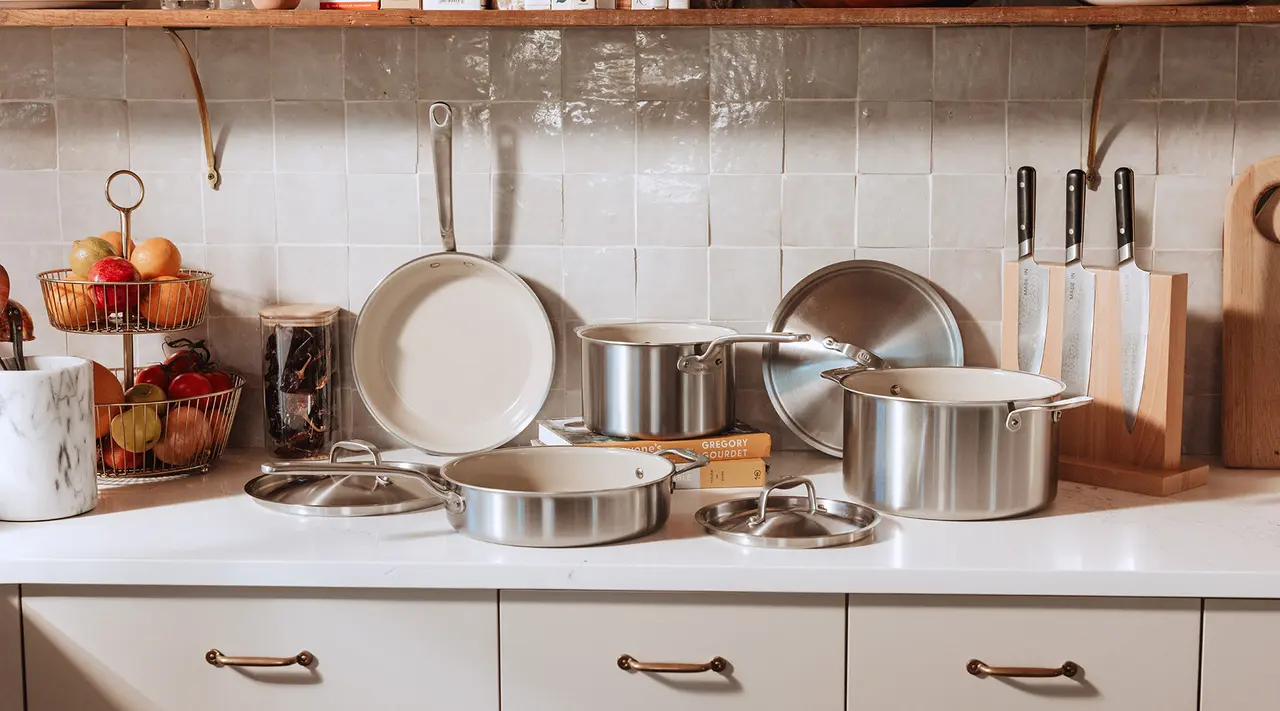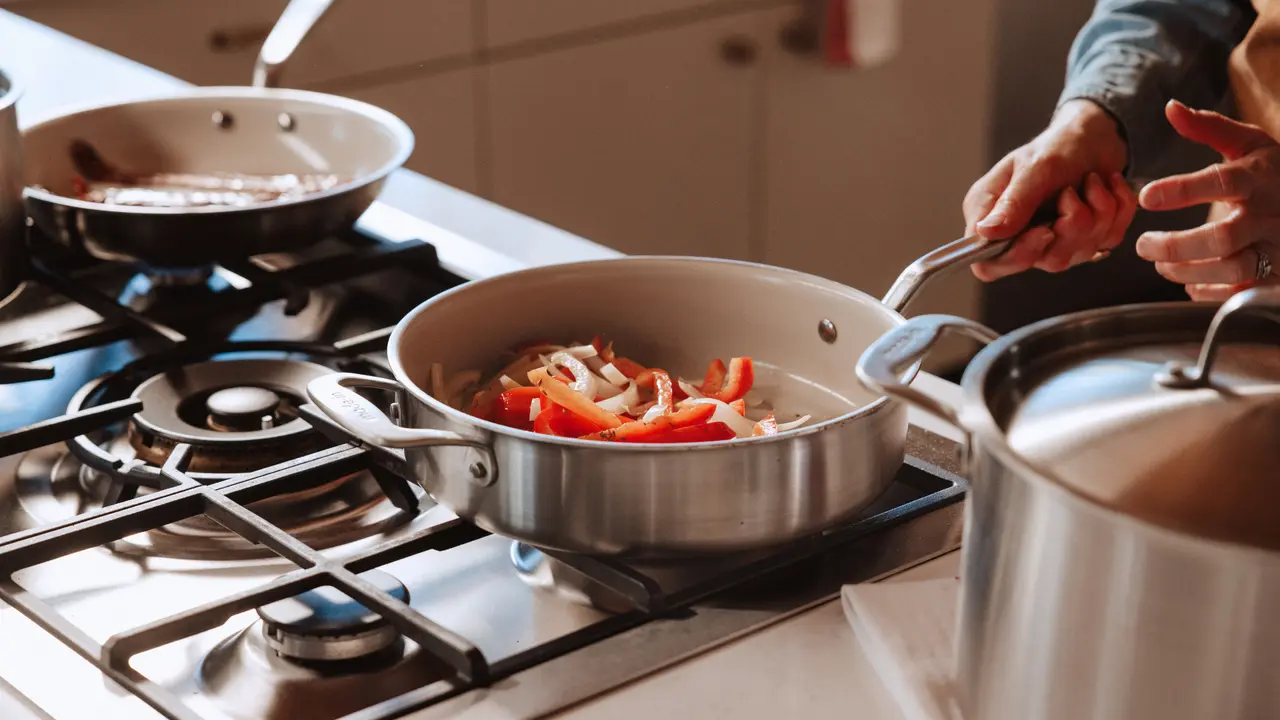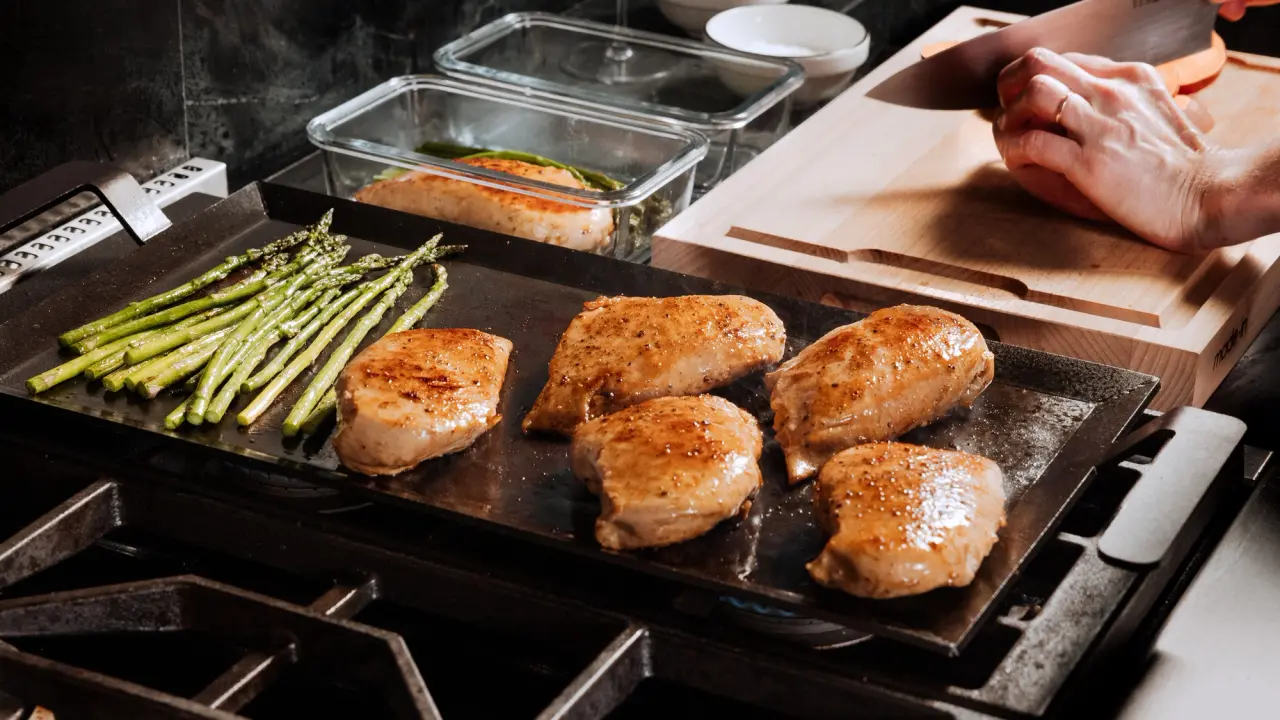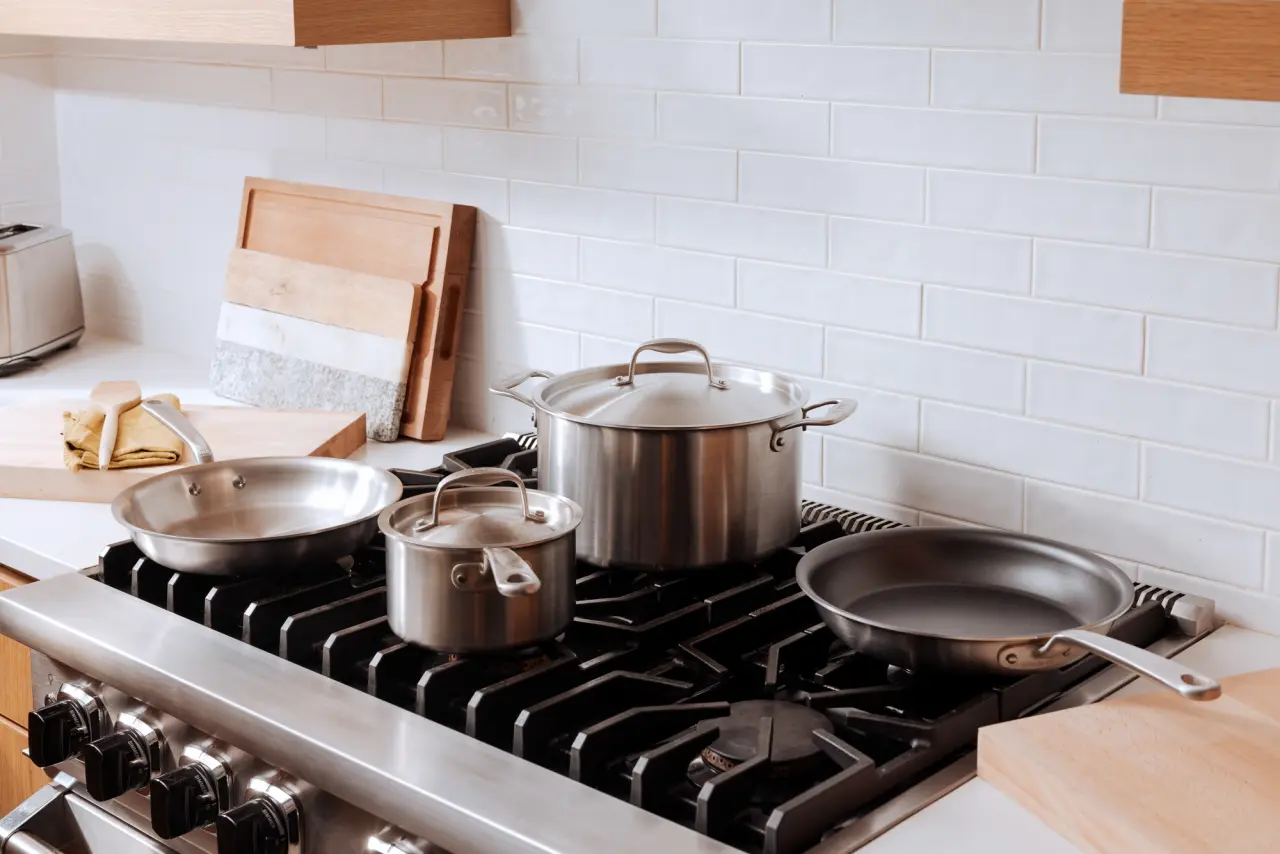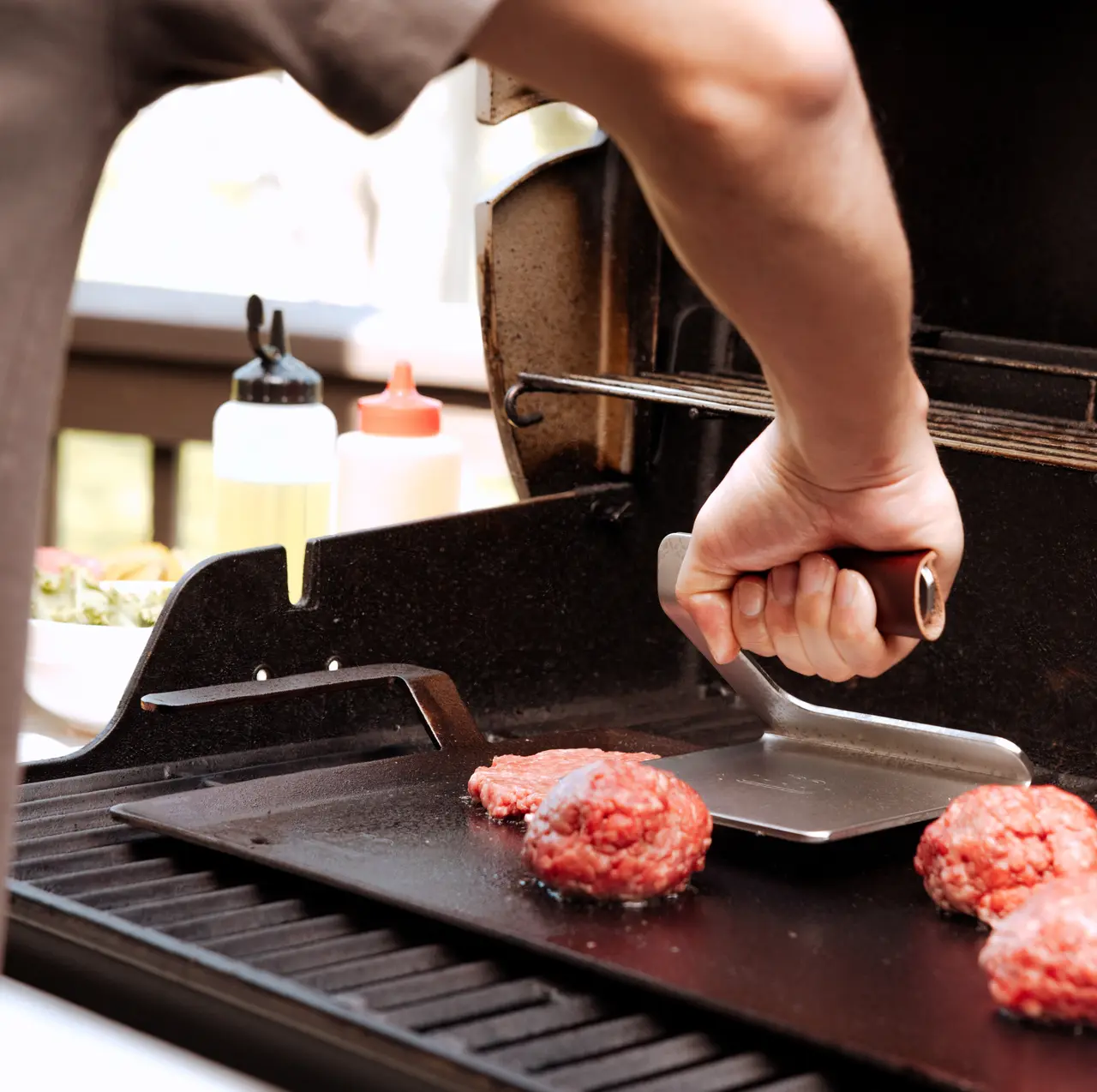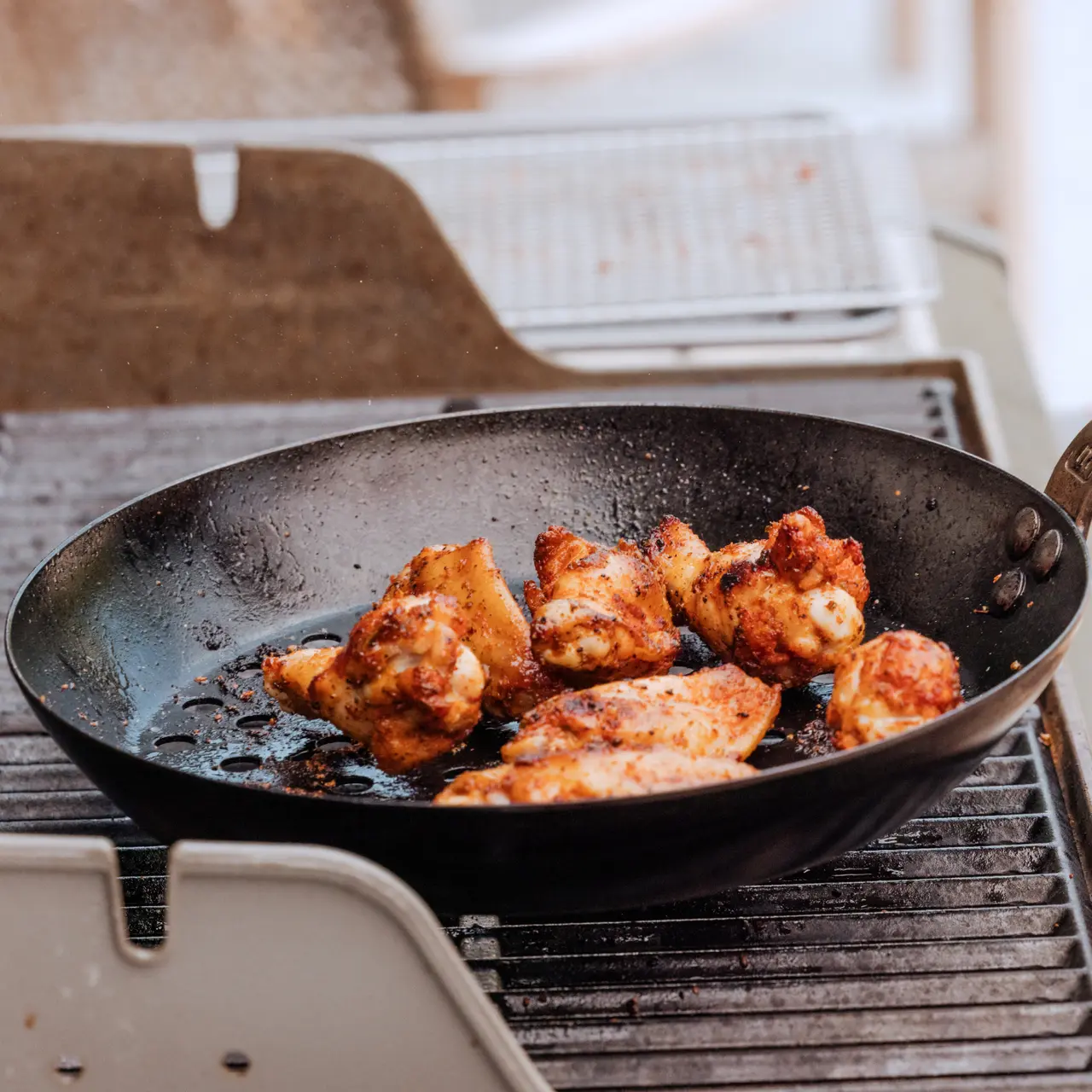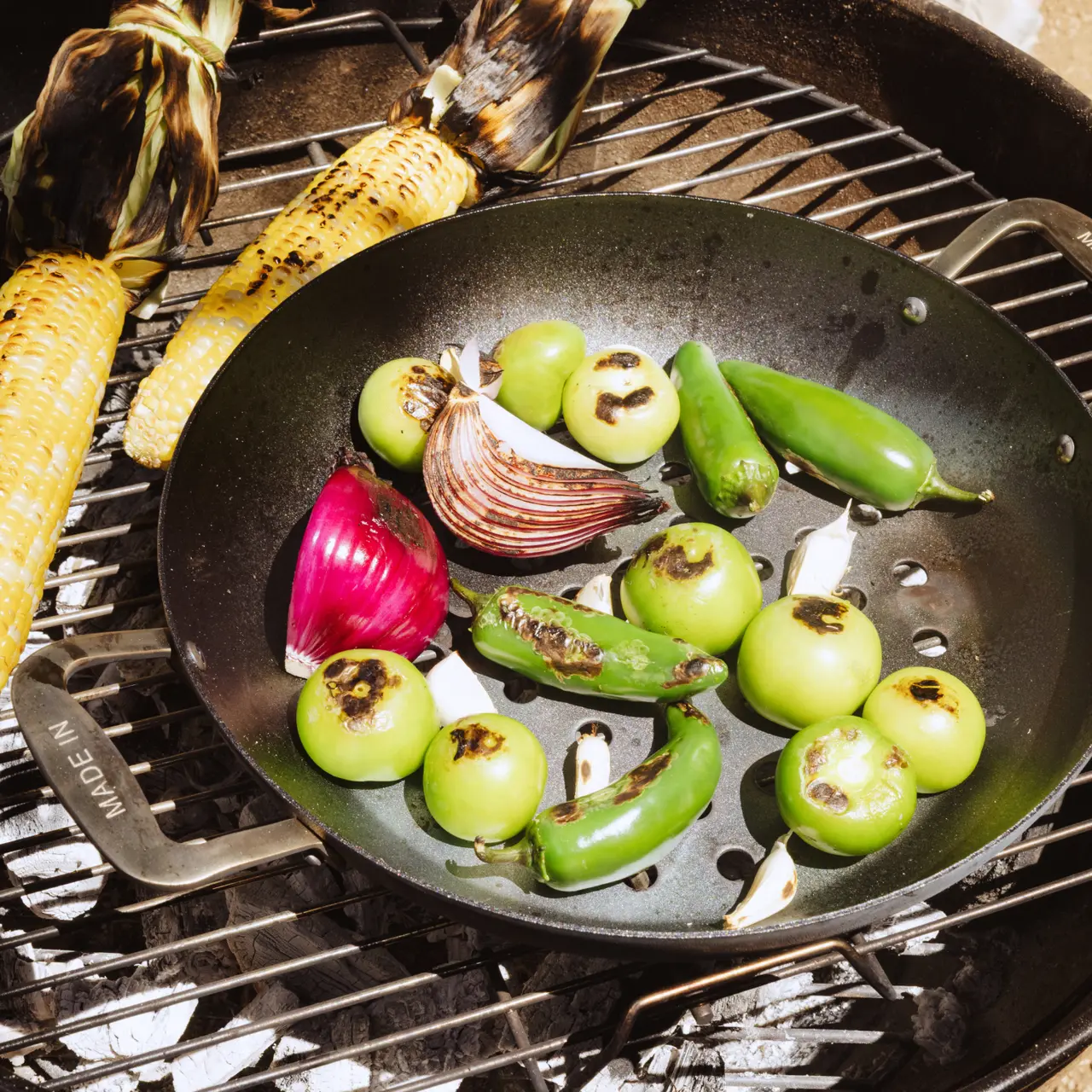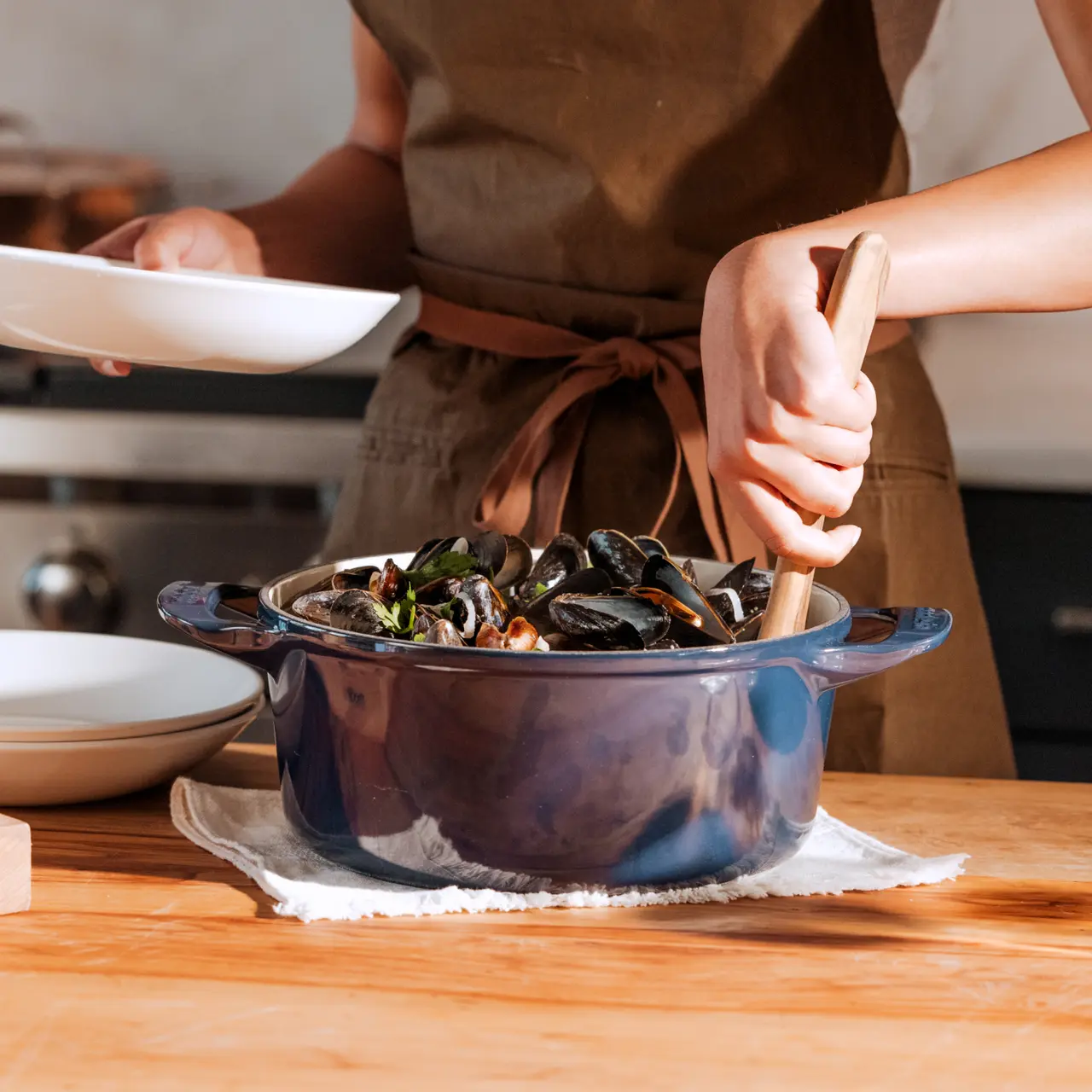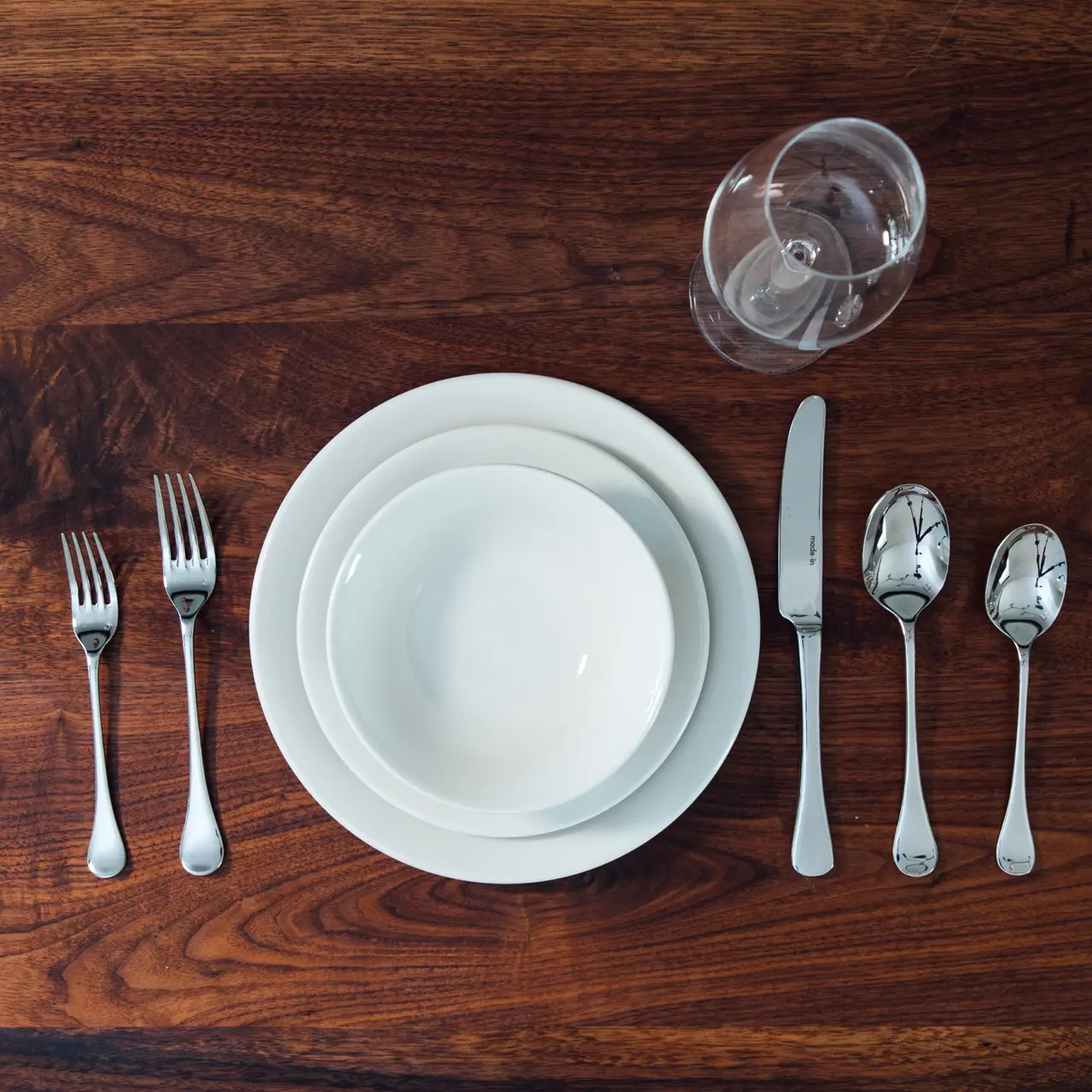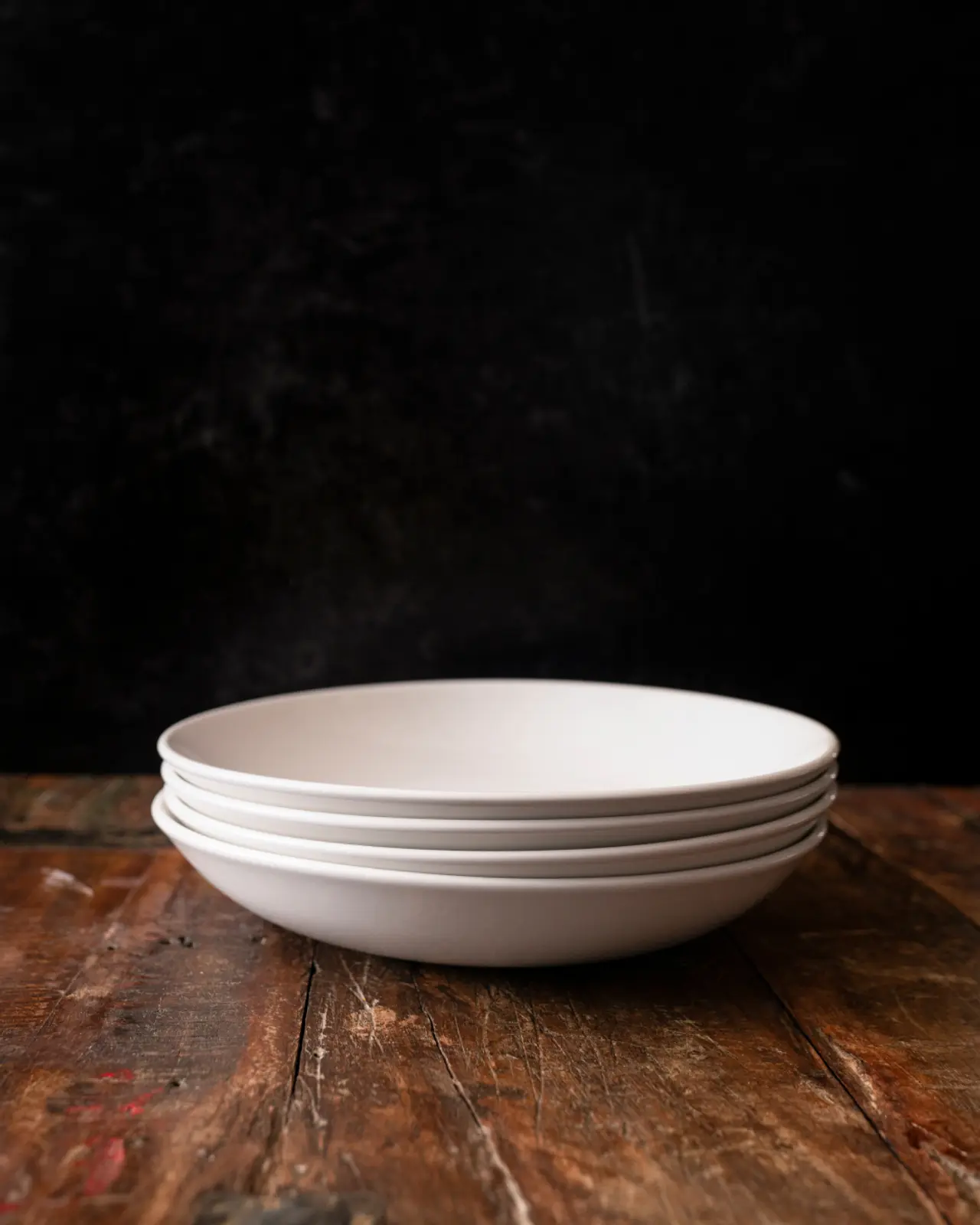There are seemingly infinite types of pots, and at least as many ways to use them. For the home cook, this makes it difficult to figure out which ones you need, as well as how to use the ones you’ve already got. Fortunately, we’re covering six essential types of pots you need in your kitchen, along with what distinguishes them from the rest.
Butter Warmer
Use for: Garlic confit, clarifying and melting butter, heating oil for chhonk or similar variations, plus small servings of vinaigrettes and sauces.
Functionally a mini saucepan, butter warmers operate much like paring knives—a small tool that comes in handy not despite its size, but because of it. Our chef partners constantly asked when we would be carrying them, and they’ve been equally popular amongst home cooks as well. Their best feature may be the curved lip around the rim of the pan, as its gentle slope makes pouring both easy and mess-free.
They’re typically made from stainless steel, which makes them nonreactive—an ideal trait for making quick sauces and vinaigrettes, which are often heavy in acid. They’re also ideal for making confit, because their small size means you don’t waste oil or fat and can use just enough to cover ingredients. But it’s with chhonk, one of the Indian names for a cooking technique in which spices and herbs are bloomed in hot oil, that the butter warmer really shines.
Dutch Oven
Use for: Roasted chicken, stews like bouillabaisse, beans, pasta in sauce, braising projects, and sourdough.
Dutch ovens are large, usually very heavy pieces of cookware. They’re similar in shape to both rondeaus and stock pots, but are somewhere in the middle when it comes to height. They’re almost always crafted from enameled cast iron.
Because of their heft, size, thick walls, and heat retention capabilities, Dutch ovens are most useful for cooking low and slow. That includes dishes like braises, sauces, soups, and stews that simmer for hours. That said, they also come in handy for higher temperature roasting, deep frying, and pasta making.
Because Dutch ovens are oven-safe, they are especially prized for both braising and baking—sourdough enthusiasts in particular love the crispy, blistered crust and tender open crumb that results from baking in a Dutch oven.
Rondeau
Use for: Anything braised or roasted.
Most commonly found in professional kitchens, the rondeau is one of the most elegant types of pots out there. Chefs put their large surface area to use by making sauces, poaching, frying, pan roasting, searing, and oven roasting. Rondeaus are usually constructed from either stainless steel or copper, but when they’re made from enameled cast iron, they’re typically called “braisers.”
Because of their impressive size and cooking surface area, home cooks often use rondeaus to prepare large cuts of meat. Ours fits an entire rack of short ribs without overlapping, and its ability to easily transition from stove to oven makes it ideal for braising.
Saucepan
Use for: Preparing grains like rice, making both savory and sweet sauces, boiling eggs, heating liquids.
Saucepans are another type of pot that are easy to identify. They range in capacity and size, but generally feature the same tall sides and tight-fitting lid as stock pots and rondeaus, with a circular base smaller than both.
Unlike stock pots, they have one extended handle rather than two smaller looped ones. They’re best for simmering, boiling, and reducing liquids, and come in a variety of materials. The most common, however, are stainless steel, non stick, enameled cast iron, and copper.
Saucier
Use for: Sauce-based dishes like mac and cheese or curry, sweet things like jam and caramel sauce, and meals that need constant stirring, like risotto.
If you’ve never used a saucier, you may think it just seems like a fancy saucepan. While they do share some similarities, there are a few distinctions between the two that make a huge difference.
They are slightly larger and wider than most standard saucepans, but their most distinctive feature is the rounded bottom and curved walls—there are no corners, and thus nowhere for ingredients to get stuck and subsequently burn. Like rondeaus, the saucier is most commonly found in professional kitchens, and as a result are usually made of higher-end cooking materials like copper or stainless steel.
They’re the best pot for sauces because the lack of corners encourages an easily stirrable, velvety smooth mixture. They’re also prized in sugar work and caramel making because they aid in controlling temperature and preventing crystallization.
Stock Pot
Use for: Making stock and cuisson, as well as pasta, soups, and stews.
Stock pots are among the largest, most basic pieces of cookware at your disposal. Usually ranging between 6 to 12QT capacities and commonly made from stainless steel, their large, cylindrical design is ideal for simmering stocks, making broths, and heating liquids of any kind. Their large capacity also helps them maintain a steady simmer over long periods of time, so you can develop and concentrate flavor.
With a wide circular base and tall, straight sides, stock pots are useful for preparing various dishes in large quantities. They also feature two helper handles on either side, unlike some other pots, to distribute weight more evenly and make the stock pot easier to carry.
Ready to Shop?
Now that you have a better understanding of the different types of pots and how to use them, you should also have a clearer picture of which ones you’re missing. And even if you do have a few of these pots already at home, you should consider whether it’s time for an upgrade.
With our cookware collections, you’re getting chef-approved, heirloom-quality cookware that will dramatically improve your cooking and last for as long as you take care of it.
